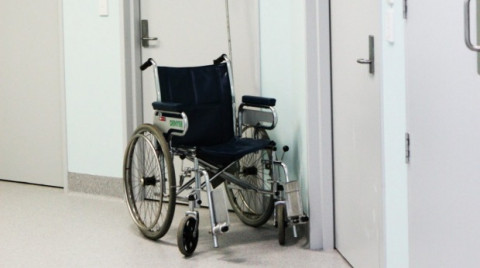
Deborah Glass
In investigating the abuse of disabled people, Victorian Ombudsman Deborah Glass found a system where process rates above the needs and human rights of people.
We must support the independence and decision making of people with disability, and never more steadfastly than when they make allegations of abuse.
We must support the independence and decision making of people with disability, and never more steadfastly than when they make allegations of abuse.
"She must just bruise easily." That's what a disability support worker allegedly told another worker looking at how marks had appeared on a client identified as Ms M, a woman with cerebral palsy, after the staff member had grabbed her and forced her to move along a path.
Another staff member at the state government-funded facility, who saw Ms M being seized and forcibly pushed, was more forthright in their assessment of what was occurring: "If that's not manhandling, what is?"
The current incident reporting system fails at every level.
Deborah Glass
Ms M's story is one of dozens of cases uncovered by Victorian Ombudsman's staff during our investigation into the way allegations of abuse within the disability sector are managed and acted upon.
What we found was a culture where process appears to be prioritised above the needs and human rights of people. The reporting of allegations of abuse in the Victorian disability sector seems to be characterised by absence and fear.
The absence is that of the person who should be at the heart of an incident of potential abuse: the person with disability. And the fear is that experienced by people with disability, their families and workers in the sector, about the implications of reporting suspected abuse.
People with disability and their families are afraid of making or pursuing complaints, for fear of losing funding or services, or that they will not be believed. Workers in disability services are afraid to report potential abuse, for fear of reprisal including loss of shifts or intimidation by supervisors.
Take the case of Ms G, a woman with multiple disabilities, living in a group home. One day a staff member said they saw her being verbally and physically assaulted by her casual support worker. The staff member saw the other worker attempting to administer medication so forcefully that Ms G's lips began to bleed. The worker then said: "I'd better stop or someone will report me." The staff member later said they felt too scared and intimidated to report straightaway. In the investigation that eventually followed, Ms G was not interviewed, and the worker denied the allegations. They were not substantiated, but the staff member's failure to immediately report was treated as misconduct.
Our investigation, which began a year ago and was delivered to Parliament in two phases, reviewed more than 400 incidents that took place in facilities caring for people with disability.
We found an oversight system so fragmented, complicated and confusing that even those who work in the field have difficulty understanding who is responsible for what. Imagine then, the challenge for people with disability.
The current incident reporting system fails at every level. It relies on a paper-based tick box form that must be faxed to a government department. Crucially, the voice of the person at the centre of the incident, the individual with disability, is absent.
What does it say about our attitude to the abuse of people with disability that technology as archaic as the fax machine lies at the crux of the system that is meant to protect so many vulnerable Victorians from harm?
We must also address the culture of fear. One of the results of this is that we simply do not know the scale of the problem. People making allegations of abuse should feel safe and supported in doing so, and confident that appropriate action will be taken. While we have seen good practice in some providers, profound cultural change and constant vigilance is required across the sector.
I made a number of recommendations to make the system fit for purpose in the 21st century. There should be a single, independent oversight body with responsibility for ensuring that allegations of abuse are appropriately investigated and lessons learned. It should be mandatory for service providers to report incidents and allegations of abuse to this body. The protected disclosure legislation regime designed to protect whistleblowers should be extended to cover all disability workers.
Most of all, the system must be refocused on the people at the centre of any incidents of abuse. We must support the independence and decision making of people with disability, and never more steadfastly than when they make allegations of abuse. For those who require assistance, the role of advocates is of paramount importance. Yet we do not even have an accurate picture of how many people need advocates, let alone the resources to provide them.
The agencies involved in recent abuse scandals in Victoria have learned the lessons outlined in my investigation the hard way. Shamefully, it is people with disability who have paid the price. I welcome the Parliamentary Inquiry into Abuse in Disability Services set up by the government; I hope after the words will come actions.
When the stories of abuse of Victorians with disability are told, the impact is shocking, and it should be. But it is the silence of the voices that have yet to be heard, or cannot be heard, that is the most damning. We need to listen – and act.
Deborah Glass is Victoria's Ombudsman.